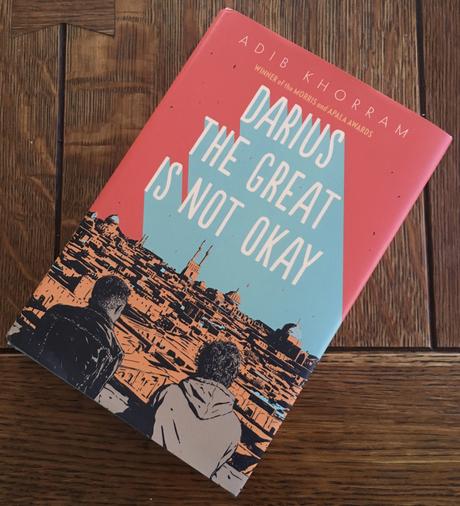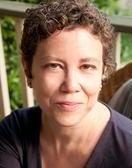
We need to listen to the voices of kids from all sorts of interfaith families, not just Jewish and Christian families. Darius the Great is Not Okay, by Adib Khorram, is a poignant, lyrical, hilarious novel, with an unforgettable protagonist from a complex interfaith family. This award-winning 2018 Young Adult (YA) novel stars Darius Kellner, an American teenager who happens to have a Persian-American Zoroastrian mother, and a European-American secular humanist father. The novel centers on a summer when Darius goes for an extended visit with his grandparents in Iran. While there, he meets a boy who happens to be Baha'i.
Darius may seem, on some levels, like a universal YA protagonist: awkward, insecure, and struggling with the feeling that he is disappointing his parents. He's a nerd who loves Star Trek and Tolkien, and hates gym class. As the plot progresses, he faces some of his demons and bullies, comes to understand his flawed parents better, and grows into a more confident young man.
But this coming-of-age narrative stands out for multiple reasons. The author, who himself experienced clinical depression as a teen, creates a nuanced portrait of a teen with inherited depression who benefits from anti-depressants. His depiction of Darius as he begins to realize he is attracted to another young man is subtle and poetic. And the exploration of Iranian religions and culture is compelling, especially to those of us who are religious history nerds.
Most relevant here, Darius will fascinate anyone who is an interfaith kid. The novel, while absolutely unique, echoes some of the themes of previous YA books with protagonists from interfaith families, going all the way back to Are You There God, It's Me Margaret (1970), up through the more recent books My Basmati Bar Mitzvah, and Mira in the Present Tense and including the brand new All American Muslim Girl. But the closest parallel may be found in prize-winning poet Naomi Shihab Nye's . As in Darius, the protagonist of Habibi is a US-born teen with one European-American parent and one immigrant parent, who goes abroad to stay with grandparents, explores cultural and religious heritage, and makes a close friend of another religion. (In the case of Habibi, a teenage girl goes to stay with her Palestinian Muslim grandmother, and meets a nice Jewish boy).
Whether we grow up in Jewish/Christian, Muslim/Christian, or Zoroastrian/atheist families, interfaith kids share some common experiences. Darius describes himself as a "Fractional Persian." He worries about whether he is Persian enough. He wonders whether he has the right to claim a Persian identity in Iran while feeling marked by his Persian identity back in the U.S. And he feels cut off from claiming Zoroastrianism because it is patrilinial (a barrier familiar to interfaith kids from other religions with gender-based inheritance traditions, including Judaism and Islam).
Darius also expresses a longing for unity across religious boundaries, and an attraction to learning about religious history, qualities many interfaith kids in my research share. He fondly notes the social solidarity of Persians in exile, who "celebrated Nowruz and Chaharshanbeh Suri together in big parties, Baha'is and Muslims and Jews and Christians and Zoroastrians..." And while in Iran, he speaks to the beauty of the muezzin's call to prayer, the wonder of the Assyrian statues in Persepolis, and the power of the Zoroastrian Towers of Silence. Darius may identify with his father's secular humanism, but he is also deeply engaged with his own complex religious heritage, and the religious landscape around him.
Last month, news broke that Darius the Great is Not Okay will become a film. And fans are eagerly awaiting a sequel novel due out in the fall: Darius the Great Deserves Better. A lot of the excitement around the sequel has focused on Darius's coming out journey (Korram tweeted that one of the titles they considered for the sequel was Darius the Great is Not Straight). But I hope the film, and the sequel, also make space for Darius to contemplate his complex spiritual and cultural identity, as part of an extended interfaith family.
Susan Katz Miller is an interfaith families speaker, consultant, and coach, and author of Being Both: Embracing Two Religions in One Interfaith Family (2015), and a workbook, The Interfaith Family Journal (2019). Follow her on twitter @susankatzmiller.

